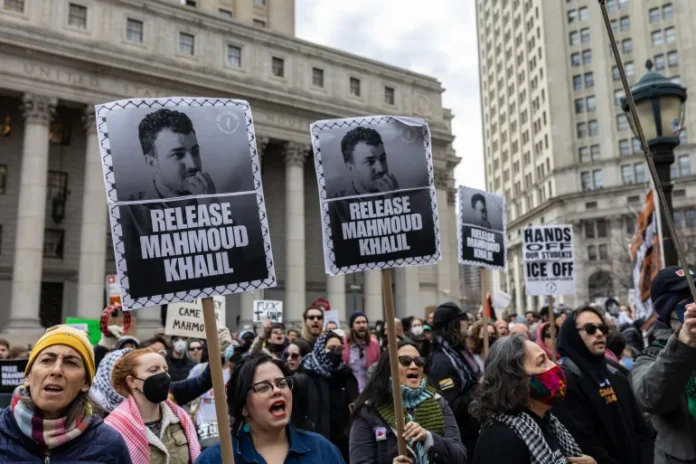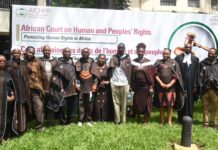
SOURCE: AL JAZEERA AND NEWS AGENCIES
Edited by Were kelly
A federal judge in New Jersey has ruled that the Trump administration cannot rely on an obscure Cold War-era law to detain and deport Columbia University student Mahmoud Khalil for his pro-Palestinian activism.
In a decision delivered Wednesday, US District Judge Michael Farbiarz found that Khalil’s detention under a provision of the Immigration and Nationality Act of 1952 violates his constitutional right to free speech. The law in question permits the deportation of non-citizens deemed to pose “potentially serious adverse foreign policy consequences for the United States.”
Judge Farbiarz described the administration’s actions as causing “irreparable harm,” citing damage to Khalil’s reputation and the chilling effect on his political expression.
However, the judge did not immediately order Khalil’s release, instead giving the administration until 9:30 a.m. ET on Friday to appeal. If no appeal is filed, Khalil would be eligible for release on $1 bail.
Khalil, a permanent resident of Palestinian descent and a prominent student protest leader, has been accused by the administration of anti-Semitism and supporting Hamas—claims that have not been substantiated with public or judicial evidence. Critics argue the administration is attempting to suppress pro-Palestinian speech by conflating political dissent with terrorism.
This legal battle unfolds in two tracks:
- Immigration Court – where Khalil is contesting his deportation.
- Federal Court – where he is challenging the legality of his detention through a habeas corpus petition.
His habeas case marks a potential turning point in how the judiciary handles cases involving free speech, immigration law, and national security under the Trump administration.
Earlier this year, an immigration judge ruled Khalil deportable under the 1952 statute, citing a letter from Secretary of State Marco Rubio that provided no substantive evidence. Unlike federal judges, immigration judges operate under the executive branch and lack full judicial independence.
Adding to concerns about the fairness of the proceedings, Khalil was denied temporary release to attend the birth of his son in April.
Judge Farbiarz signaled skepticism toward the administration’s additional claim—that Khalil had been dishonest on his green card application—calling such detention “overwhelmingly unlikely” for permanent residents.
Khalil’s case has drawn national attention, echoing the experiences of other detained students such as Mohsen Mahdawi, Rumeysa Ozturk, and Badar Khan Suri, all of whom have since been released as legal proceedings continue.
This ruling marks a significant check on the government’s use of broad national security powers to restrict free expression, especially in the context of mounting tensions over student-led protests on U.S. campuses.


















